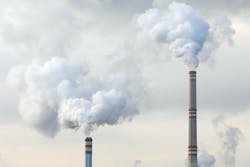EPA officials say final effluent limitation guidelines for steam electric plants will save money, reduce pollution
The U.S. Environmental Protection Agency (EPA) recently announced final revisions to effluent guidelines and standards for steam electric power plants, revisions that agency officials say will save money and reduce pollution.
The final rule revises a 2015 Obama-era regulation by leveraging newer, more affordable pollution control technologies and taking a flexible, phased-in implementation approach. As a result, the new rule will save the U.S. power sector approximately $140 million annually while reducing pollution by nearly a million pounds per year over the 2015 rule.
“EPA’s revised steam electric effluent guidelines shows President Trump’s commitment to advancing American energy independence and protecting the environment,” said EPA Administrator Andrew Wheeler. “Newer, more affordable pollution control technologies and flexibility on the regulation’s phase-in will reduce pollution and save jobs at the same time.”
The agency’s final Steam Electric Reconsideration rule revises requirements for two waste streams from steam electric power plants: flue gas desulfurization (FGD) wastewater and bottom ash (BA) transport water. Key changes to the 2015 rule include:
- Changing the technology-basis for treatment of FGD wastewater and BA transport water.
- Establishing new compliance dates.
- Revising the voluntary incentives program for FGD wastewater.
- Adding subcategories for high-flow units, low-utilization units and those that will cease the combustion of coal by 2028 and finalizing requirements that are tailored to facilities in these subcategories.
The agency considered input from a broad variety of stakeholders in developing the final rule and considered a wide range of data, information and stakeholder input. The agency also updated its industry profile based on more recent data, conducted a limited information request and collected voluntarily provided sampling data.
For more information on EPA’s final Steam Electric ELG Reconsideration rule, see: https://www.epa.gov/eg/2020-steam-electric-reconsideration-rule.
